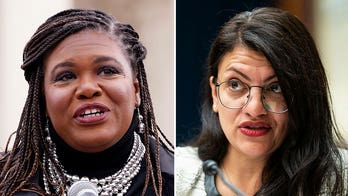Lawmakers from both parties on Monday admonished a federal ethics official who sent a series of tweets commenting on President Donald Trump's potential conflicts of interest.
Members of the House Oversight and Government Reform Committee said the tweets by Walter Shaub Jr., director of the Office of Government Ethics, were inappropriate and could compromise the agency's objectivity.
In tweets sent in November, Shaub congratulated Trump for agreeing to divest from his business—an agreement Trump had not yet made. Shaub later issued a scathing review of Trump's plan to turn over control of his business to his sons.
Committee Chairman Jason Chaffetz of Utah called Shaub's Jan. 11 comments "highly unethical" and summoned Shaub to a closed-door meeting. Chaffetz and committee Democrats met with Shaub for more than an hour Monday, an unusual meeting prompted by Republicans' frustration with the ethics office and its operations—rather than Trump.
Chaffetz, the chairman of the GOP-led House Oversight and Government Reform Committee, said he sent a letter to Walter Shaub Jr., director of the Office of Government Ethics, asking him to appear before lawmakers in a closed-door, transcribed interview.
Politico reported that Shaub responded to the request in a letter asking for their meeting to be open to the public to “ensure transparency and educate the public about how OGE guards the executive branch against conflicts of interest.”
The OGE is responsible for ensuring that members of the new administration are avoiding potential conflicts of interest.
Rep. Elijah Cummings of Maryland, the panel's senior Democrat, said lawmakers from both parties were troubled by Shaub's initial "bravo" tweets, sent soon after Trump was elected president.
"When he did that, it didn't seem professional," Cummings said.
Chaffetz said he and other lawmakers told Shaub they were frustrated by the tweets, calling them unproductive and distracting.
"I don't think it solves the challenge. It's not their role," Chaffetz said, adding that he believes Shaub received the bipartisan message at Monday's meeting.
The Associated Press contributed to this report




